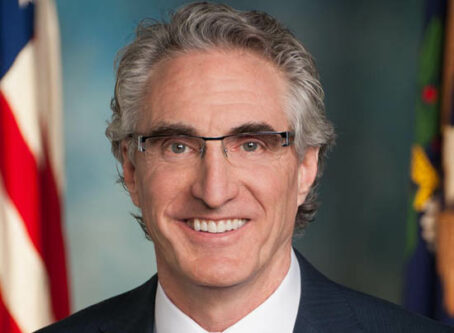Connecticut DOT and economic report back governor’s plan for tolls and fuel taxes
Shortly after Connecticut Gov. Dannel Malloy proposed an increase in fuel taxes and tolls to pay for transportation, the state’s Department of Transportation echoed that idea during a Transportation Committee meeting on Monday. However, some state lawmakers are opposed to more taxes, including tolls.
Earlier this year, Gov. Malloy proposed an increase in fuel taxes, tolls and to even add a $3 tax on tires to fund transportation needs. Republican lawmakers expressed outrage over the plan, pointing out that not only has the current governor’s administration taken money away from transportation to fund other projects but also that Connecticut residents are already overtaxed.
Despite opposition from lawmakers, CTDOT expressed to the Transportation Committee on Monday that, barring any new revenue sources, Connecticut’s transportation needs are in a lot of trouble. CTDOT Commissioner James Redeker told the committee that with 40 percent of the Special Transportation Fund allocations going to the department, any shortfall in the STF puts a significant burden on the DOT.
Redeker put partial blame on the budget passed in October that will lead to a DOT operation deficit of nearly $400 million over the next five years. Despite people pointing fingers at the fuel tax, Redeker explained that although fuel tax revenue is slightly declining, the real issue is with the petroleum products gross receipt tax. In 2014, fuel cost $4 before dropping to $2.50 in 2017, causing a $140 million drop in gross receipt tax revenue.
With hundreds of job vacancies and postponing more than $4 billion in DOT projects, Redeker kept emphasizing the dire need for additional revenue. He pointed out that the income stream is the responsibility of the legislature, not the DOT.
“We cannot solve the (Special Transportation Fund) problem by cutting expenses,” Redeker said. “There are consequences of balancing the budget without adding income to the STF.”
With that said, Redeker pointed to the governor’s proposal as a viable solution to the Special Transportation Fund problem. More specifically, Redeker claimed that adopting those sources of revenue will result in no service and fair impacts, no capital program reductions and sufficient, sustainable fund income.
According to a CTDOT spokesperson, the DOT does not officially advocate on issues like tolls. Rather, the governor and General Assembly make those policy decisions and the DOT implements them.
However, without additional revenue such as tolls and tax increases, Redeker reminded the committee of the current situation, which was not very positive.
“The state of Connecticut is paralyzed and is failing economically because of the condition of its transportation network,” Redeker said.
One lawmaker opposed to the governor’s plan is Sen. Toni Boucher, R-Wilton. Although she agrees that Connecticut is in “deep trouble” financially, Boucher is strongly against any new taxes.
“The people in Connecticut are fed up,” Boucher told Land Line. “They do not want any more taxes. They do not want a toll, which is to them like a tax.”
Boucher explained how Connecticut residents are already being taxed at an extremely high level. In Connecticut, residents have to pay a car property tax in addition to sales and fuel taxes.
Taxpayers also have to fork over money for a real estate conveyance tax, pension tax, social security tax, a new income tax, and a “gift” tax unique to the Constitution State. A yoga tax was even proposed as well as a 25-cent deposit on every wine bottle.
The state gas tax of 39.85 cents in 2017 was the sixth highest in the country. According to Boucher, Connecticut has some of the highest administrative costs per mile of roadways, approximately nine times higher than average.
So if taxes are not the problem, what is? Where is the government spending the money?
“They raided transportation money to plug holes in budgets and deficits,” Boucher said. “They spent transportation money for things that no one supported, like big busways, $500 million worth. They’ve used it to fix sports stadiums and private parking garages.”
In other words, Boucher wants the government to spend its money more wisely by allocating transportation money only to transportation needs.
“As chair of the transportation committee, I will oppose tolls unless they cut something else.”
Commission on Fiscal Stability and Economic Growth report
Commissioner Redeker told the Transportation Committee in Monday’s meeting that the department was waiting on the Commission on Fiscal Stability and Economic Growth report for possible alternatives if its recommendations differed from the governor’s plan. They did not.
On Thursday, the commission released the report, recognizing that the state “is in quiet crisis by every measure.” Among the recommendations was a call to raise the gas tax to fund transportation projects and produce a plan for electronic tolls.
“Connecticut must invest in transportation and provide a stable funding source to pay for transportation investments that cannot be raided by the legislature for non-transportation expenditures,” the commission reported.
The commission supported the following additional Special Transportation Fund revenue streams:
- An increase of at least 7 cents over four years in the motor fuels tax;
- Retention of the half cent of sales tax currently contributed from the General Fund;
- Immediate receipt by the STF of the new car sales tax; and
- Creation of tolls on major highways.
In the report, the commission noted that it considers tolls an inevitability as Connecticut is the only state on the Atlantic Coast without them.









